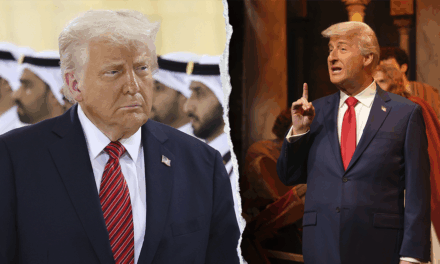James Comey, the former director of the FBI, recently made headlines following his controversial social media post involving the enigmatic phrase “86 47.” In a world often filled with speculation and conspiracy theories, Comey took the opportunity to clarify his intentions regarding the post and, more importantly, his stance toward Donald Trump.
In his statement, Comey emphasized that he harbored no “dark intention” when he shared the cryptic message, which many interpreted as a veiled reference to either Trump’s presidency or his own tumultuous experiences while leading the FBI. The phrase has stirred considerable debate among political analysts and social media users alike, leading to a flurry of interpretations regarding its meaning. However, Comey’s clarifications appear to underline a broader theme: his commitment to honesty and transparency.
The phrase “86 47” itself is shrouded in ambiguity. While some speculate it could refer to certain aspects of political maneuvering during Trump’s presidency, Comey insists that any connection is purely coincidental or subjective in nature. “I am not attempting to send a coded message to anyone,” Comey explained, adding that he often uses social media for personal expression rather than political commentary.
Comey’s tenure as the FBI director was marked by high-profile investigations, including the probe into Hillary Clinton’s emails and Russia’s alleged interference in the 2016 presidential election. Given the contentious nature of those times, it is not surprising that his posts often invite scrutiny. Yet, Comey expressed indifference to the attention his social media activity garners from the political sphere.
“I believe in the freedom to express oneself in whatever form of communication one chooses,” he said. “If people want to interpret my words or actions in a particular manner, that is their right. But I am not responsible for their interpretation.” His comment indicates a detachment from the alleged concerns many have cited about his posts and their implications for political discourse.
Furthermore, when it comes to Donald Trump, Comey’s feelings are unequivocal. He maintains that he is not afraid of any repercussions stemming from the former president’s influence or threats. He has been vocal about his experiences during the investigation into Trump’s campaign and believes that he acted within the jurisdiction of his role as FBI director. “I have nothing to fear,” he remarked, “I did what I believed was right and necessary for the country. If anyone has a problem with that, it’s their issue – not mine.”
This statement signals Comey’s resolve in standing by his decisions and actions, despite any political backlash or public criticism he may have faced. Over the years, Comey has demonstrated a willingness to engage with heavy controversy, and his latest remarks serve as a reaffirmation of his views on ethical governance and accountability.
Critics have pointed to Comey’s past decisions and questioned his credibility, especially regarding the timing of his actions leading up to the 2016 election. Others have suggested that he has become a polarizing figure within American political discourse, particularly when discussing issues related to law enforcement and politics. Nonetheless, Comey remains steadfast in his ideology. He appears more concerned with the principles of justice and integrity than with public opinion.
The discourse surrounding Comey’s post and Trump’s looming presence in American politics raises vital questions regarding the separation of powers and the role of law enforcement in a democratic society. Critics have often lamented the apparent intertwining of the justice system and political conflicts, arguing that it undermines the very foundations of American democracy.
As discussions about democracy, transparency, and accountability continue to unfold across various platforms, Comey’s unyielding approach takes center stage as a reflection of his broader philosophy. Many Americans are looking for leaders who can set aside personal vendettas in favor of duty and responsibility. Comey’s experiences, both as FBI director and as a citizen, evoke conversation concerning moral complexity in public service.
Although Comey expressed a desire for people to focus on the content of his messages rather than engage in speculation, it is likely that the conversation will persist. The interplay of social media and political narratives keeps the public engaged and often leads to interpretations that diverge from authors’ intentions. Thus, Comey’s insistence on clarity appears to address a legitimate concern about communication in today’s political landscape.
Moreover, Comey’s straightforward attitude speaks to a fundamental aspect of his character; he aims to prioritize principles over popularity. For many Americans, especially those disillusioned by political theatrics, his stance may evoke a semblance of hope for authentic governance. Nonetheless, navigating the complexities and potential pitfalls of political communication remains a challenge for anyone wishing to convey messages to a divided populace.
Despite his assertions, Comey is not immune to criticism, both from supporters and detractors. Remarks made in political or social contexts often generate varying degrees of backlash or support, and Comey’s recent post was no exception. Social media facilitated immediate reactions and discussions, showcasing the power and peril of digital communication in politics.
As the political climate shifts and evolves in response to multiple influences, including social media exchanges, elections, and legislative changes, James Comey’s assertions serve as a lens through which we might view broader implications for communication in public service. Moving forward, the challenge remains for public figures to convey their intents clearly while navigating the complexities of public perception in a polarized environment.
In conclusion, Comey’s post about “86 47” opened a Pandora’s box of discussion regarding the intersection of communication, ethics, and politics. His focus on intent offers a reminder that the world is not always as it seems, and the motivations behind individual actions can often be misunderstood. That said, the stakes are high, especially for leaders in positions of influence and authority. While Comey’s intentions may be pure, the interpretations of his statements will likely continue to expand, as will the broader discussions regarding public trust, transparency, and accountability in governance.
































